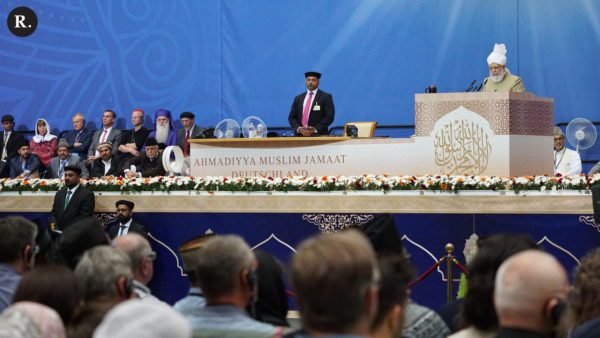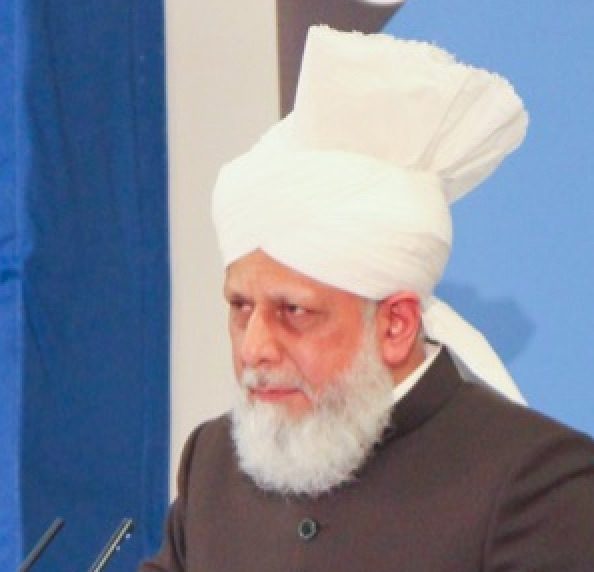
Nigerian terror group Boko Haram made worldwide headlines when it audaciously abducted more than 250 girls aged sixteen to eighteen from the Government Secondary School in Chibok, Nigeria on the night of April 14th, 2014. Its leader, Abubakar Shekau, then emerged in a video message threatening to sell these girls into slavery, claiming that Allah had given him permission to do so. This terrorist group is known officially as Jama’at Ahl-e-Sunnah Lidda’awa wal-Jihad – which translates to ‘Congregation of the People of Tradition for Preaching and Jihad’ – but is more commonly referred to as Boko Haram.
‘Boko’, in local Hausa language, means something deceitful and fraudulent. Over time, as sentiments towards the West turned increasingly negative, this word began to be used as a colloquial term to refer to Western education. Thus, the term Boko Haram is a phrase that has become widely accepted to mean, ‘Western Education is forbidden (or a sin)’. This terrorist group is fundamentally opposed to any education it deems to be influenced by ‘the West’ but also more generally opposes any education of girls.
Muslims worldwide had known about Boko Haram and its despicable actions long before it stepped into the international spotlight for its mass abduction and threats of enslavement. And as expected, Muslims have spoken out for years to condemn Boko Haram’s politically motivated campaign of murder, bombings, kidnappings, suicide attacks and prison breaks. For a devout Muslim grounded in the true teachings of Islam, the latest abduction of Nigerian schoolgirls is the most recent and heinous act in a series of behavior that has absolutely no basis in the teachings of Islam. Muslims often respond to such depraved abuses with the knowledge that terrorists like Boko Haram will receive a severe punishment by Divine decree, for the Prophet Muhammadsa had himself once said, “Allah will chastise those in the next world who persecute His people in this one.”[1]
Although it is undeniably clear that abducting children and selling them into bondage is a gross violation of Islamic doctrine, this incident in Nigeria offers the world at large the opportunity to reflect on the Islamic commandments regarding education and how to properly raise children. Although no just, right-minded person would even consider abducting a child, let us ponder over whether we understand Islam’s emphasis on properly raising a child. The Prophet Muhammadsa had once stated to his companions “No father can bestow on his child a gift more precious than good upbringing.”[2} Despite living in this modern age and possessing the ability to give children valuable gifts, God has instructed that no gift will be as precious and valuable as that of a good upbringing.
Islam lays great importance on education and commands parents to raise children in the best manner, regardless of gender. By commanding his followers to “Be mindful of your duty to Allah and act equitably between your children” the Prophet Muhammadsa has made it clear that preference cannot be given to one child over another or a son over a daughter. In order to live up to these words of the Prophet of Islamsa, Muslims must remember that our daughters are to be given the same access and opportunity to education, guidance and affection as our sons.
The Prophetsa addressed this commandment of equity very clearly when he said, “He who has a daughter and does not bury her alive, nor humiliate her, nor give a son preference over her will be admitted to Paradise by Allah.”[3] In effect, he builds upon the Qur’an’s instructions to stop the vile pre-Islamic Arab custom of killing newborn girls by further elaborating that God expects parents to protect their daughters from humiliation and to avoid giving their sons any preference over their daughters.

These are just a few of the many accounts and traditions that speak about gender equality and access to education in Islam. With this in mind, how can Muslims adhere to teachings of a group such as Boko Haram? How can such a group even conceive that Islam would sanction the barring of education for girls while allowing education for boys? This is a clear and blatant violation of the Prophet Muhammad’ssa instructions. Their barbaric actions expose their absolute ignorance of Islam, thereby revealing that the motivation for their brutality and injustice is not religion, but in fact political control. Although the average Muslim parent would not think of physically barring their daughter from education, perhaps some may find themselves complacent in the pursuit of higher education for their sons as compared to their daughters. The Prophetsa of Islam specifically laid great emphasis on not only the education of all children but specifically of daughters, saying “If a daughter is born to a person and he brings her up, gives her a good education and trains her in the arts of life, I shall myself stand between him and hellfire.”[4]
Throughout the teachings of Islam, one will find a consistent undercurrent of empowerment and equity granted to both men and women. In particular, obtaining education is not only a right but also an obligation for every man and woman, according to the teachings of Islam. Anyone standing in their way of education is effectively preventing them from experiencing what has been enjoined upon them by God. Along these lines it is important for parents to instill in children the passion and zeal for obtaining education. The Prophet Muhammadsa advised that one “who follows a path for seeking knowledge, Allah will ease the way to Paradise”[5] indicating the spiritual significance of seeking education.
So the need to not only pursue education but to also allow and encourage all children to do so, cannot be overstated. The teachings of Islam indicate immense spiritual significance to obtaining education for ourselves and setting our children (boys and girls alike) on the path to doing so as well. Surely, education is a key component to the cure for the malady of violent and cruel ideologies like those espoused by Boko Haram. Consequently educating children will inevitably play a vital role in bringing peace and justice throughout the world.
This is precisely the point made by His Holiness Mirza Masroor Ahmadaba – the Worldwide Spiritual Leader of the Ahmadiyya Muslim Community and the Islamic world’s only Khalifah – when speaking at a 2013 reception in his honor in Singapore. His Holiness said, “Islam teaches that each and every child, no matter his or her background, should be provided a proper education so that they can develop into skilled and truly beneficial members of society”.[6]
In other words, knowledge or education is not the end goal in itself. It is a means to a loftier goal consistent with Islam’s broader instruction for its followers to positively contribute to the betterment of their society and the world at large. The Qur’an is abounding with ample commandments to establish peace, justice and order in the world, and obtaining education is a key ingredient in doing so. Even if a good education can be a source of personal gain by providing for a great career or profession, that is not the end most noteworthy goal, according to the wisdom found in Islam.

In fact, to only look at education (be it traditional or alternative education) through the lens of personal gain and career advancement is to miss the spiritual significance Islam attaches to education. In addition to using one’s knowledge for the betterment of society, Islam offers the wisdom that such higher levels of knowledge and education enables one to better understand Allah, His creation, the beauties of His world and what beneficial role we can play in respecting and appreciating it.
Therefore, a Muslim’s identity should be a catalyst for seeking and obtaining education, for it serves as a means of fulfilling Islam’s requirements to make the world a better, more peaceful and just place to live. So critical is this mission that Islam then instructs followers to impart this same pursuit of wisdom and knowledge upon their children – with no discrimination between sons and daughters.
The world faces many dangers– from hunger and poverty to injustice, subjugation and tyranny of groups like Boko Haram and many more around the globe. Our collective fight against oppression, cruelty and ignorance begins by arming ourselves with weapons such as knowledge, wisdom and justice to strengthen our stance and empower our young. In these tumultuous times, it is imperative for us to impart wisdom and sound education to our children. This is a collective task and a shared responsibility. Together, as we empower young men and women to be wiser, stronger and more enlightened people, we help to safeguard human rights and dignity for not only ourselves but also our future generations to come.
Harris Zafar serves as National Spokesperson for Ahmadiyya Muslim Community USA and Staff Writer at The Review of Religions. He has appeared on several national and local news programs to provide commentary on current issues from an Islamic perspective is also an Adjunct Professor at two colleges, teaching classes about Islam.
Endnotes
1. Muhammad Zafrullah Khan, Wisdom of The Holy Prophet (Islam International Publications Limited, 1995), 68.
2. Ibid., 13.
3. Ibid.
4. Diane Morgan, Essential Islam: A Comprehensive Guide to Belief and Practice (Greenwood Publishing Group, 2010), 198.
5. Imam Nawawi, Riyadh as-Salihin (Gardens of the Righteous), translated by Muhammad Zafrullah Khan (Curzon Press Ltd, 1975), 232-233.
6. “Head of Ahmadiyya Muslim Community delivers Historic Address in Singapore,” Al Islam, September 27th, 2013, https://www.alislam.org/egazette/press-release/head-of-ahmadiyya-muslim-community-delivers-historic-address-in-singapore/.




Add Comment